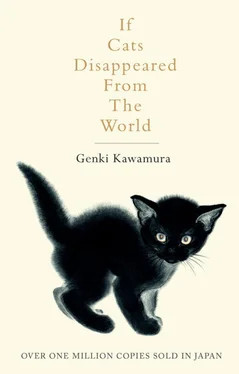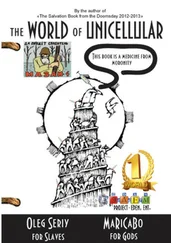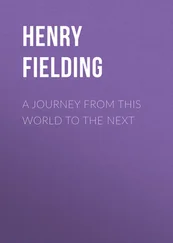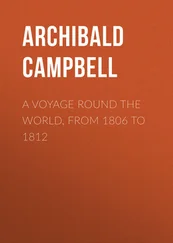“Let’s go!”
Are you a stalker or something? I felt like shouting, but managed to keep it in. I slammed the door and finished rinsing my hair. I had a simple breakfast, just a banana and some milk, then quickly got dressed.
“Really I must insist. Open the door this instant. I wish to go out.”
Cabbage was in the small entry to the apartment scratching at the door with his claws. I was more or less ready, so I caught up with him and we left for a walk.
The weather was good. A perfect day for a walk. Cabbage walked ahead with a spring in his step. Mom would always go out on walks with Cabbage. When I think about it, that means Cabbage got to know a part of my mother that I never saw. In any case, I decided I would take it easy and spend the day with Cabbage.
Another thing I wondered about was how was it that Cabbage came to speak like an upper-class gentleman. Then suddenly I knew.
It was Mom’s influence.
Around the time Cabbage first came to live with us as a kitten, Mom suddenly got into TV period dramas. (This was during the “My Boom” of the late 1990s when it seemed like everyone was adopting short-lived obsessive interests.)
She would watch popular long-running series and declare that “all Japanese men should be like this”.
Along with her personal “boom” came outdated theories about Japanese masculinity.
“Sorry, Mom, but I really prefer films to TV shows.”
I politely refused her offers to join in with her historical drama obsession.
So Mom would watch hours of TV with Cabbage curled up on her lap. Cabbage must have learned human language from the shows they watched.
So Cabbage’s Japanese was an odd mixture of my mother’s speech and period TV dramas. It was kind of terrible… and yet kind of cute too. So I decided I wouldn’t try and correct it. This is what was going through my head as I followed behind Cabbage.
Cabbage’s preferred route for his walks was overgrown with weeds, but here and there wildflowers also bloomed. Below a telephone pole I noticed some dandelions flowering inconspicuously, and it occurred to me that spring was on its way. Cabbage went up to the flowers and smelled them.
“Dandelions.”
When I said the word Cabbage made a face.
“One would call these dandelions?”
“Didn’t you know?”
“No.”
“It’s a flower that blooms in spring.”
“Ah, I see…”
Cabbage went on to approach every flower we passed along the roadside, asking endlessly, “And what might one call this?”, “And this?”
There was an endless variety of wildflowers growing by the side of the road, and Cabbage wanted to know them all: vetch, shepherd’s purse, common fleabane, marguerite, Paris daisy, henbit, and so on.
The wildflowers on the roadside were exposed to the north wind and completely dependent on what little warmth they could get from the sun. At that time of year, they were in full bloom. I trawled my memory to try and find the names of the flowers, to teach them to Cabbage. It was strange how the names did come back to me—memories from my childhood, all that time ago.
Like Cabbage, I used to take walks with my mother when I was small. I would ask her questions too: “What do you call that? And that?” I suppose I was just like Cabbage. To think that Mom spent her days like that, putting up with me, and then later putting up with Cabbage.
“You’d find a flower and then sit down, then find another flower and sit down again. Walks would last forever. It’s not easy taking care of a small child.”
My mother would tell me this, once I’d grown up.
“But those were happy times all the same.”
She’d get that faraway look in her eyes, talk nostalgically about the past, then let out a little laugh.
Having taken our time, Cabbage and I finally reached the park at the top of the hill.
There was a beautiful view from the park. Just below us we could see the road we’d hiked up, lined with houses. Then beyond that was the sea, the color of lapis lazuli. It was a particularly big park, but it had a swing set and slide, and a seesaw for kids. Mothers played with their small children in the sandbox.
Cabbage circled the park, played a bit with the children, and then headed toward the benches where the old men played Japanese chess. “Get out of my way, I’m sitting here,” he announced. I was worried that the sudden appearance of a talking cat would frighten the old men, but they just smiled and laughed. Apparently I was the only one who could hear Cabbage speaking.
“No, Cabbage. These people are using the bench now,” I said.
But Cabbage was having none of it. Suddenly he jumped up onto the chess board and the pieces went flying. But the old men just laughed it off and acted like it happened all the time. They gave up their spot for Cabbage.
I hung my head apologetically as the old men got up and left. Cabbage gave me a side-glance and positioned himself on the wooden bench, from which ribbons of blue paint were peeling off. He started licking his paws.
It looked like he wasn’t going anywhere for a while, so I sat down beside him and gazed absent-mindedly at the ocean that extended for as far as the eye could see. It seemed possible that this peaceful moment might last forever. I looked over at the park’s clock tower as I tended to do. As I suspected, there was no clock. Was the disappearance of time responsible for this calm? Or had it always been that way? I couldn’t tell. But now that I had finally come to terms with the fact that clocks were no more, I felt light and free.
“Humans are strange creatures.”
Cabbage must have finished grooming himself. He looked in my direction as he spoke.
“What’s that?”
“Why do humans give flowers names?”
“That’s because there are so many different kinds. Without names you wouldn’t be able to differentiate between them.”
“Just because there are different kinds it doesn’t mean you have to name each and every one. Why not just call them all flowers? Isn’t that good enough?”
I suppose he was right. Why do people name flowers anyway? And flowers aren’t the only thing. We give names to all kinds of objects. Colors have names and so do people. Why do we need names?
It’s the same with time. The sun comes up and it goes down. Humans went and imposed their own system of months and years, hours and minutes, on what was a natural phenomenon. Then we gave all those things names. And that’s all that time is.
Cabbage existed in a world without time. No clocks, no schedules, and no being late. And no such thing as categorizing people according to age or what year they are in school. And no vacations because there’s nothing to have a vacation from in the first place. There’s just the changes brought about by natural phenomena, and our physical response—like when you’re hungry or sleepy.
In a world with no clocks, I could take my time and think about things. It seemed to me that there were all kinds of rules made up by human beings—rules that begin to fall apart when you look at them closely. I find myself coming to the realization that the ways we have of measuring things—like, say, temperature, or the reflection of light that produces color—are artificial human creations, just like time. Basically humans just applied labels to the things they sensed. From the perspective of the non-human world, hours, minutes, and seconds don’t exist. Nor do colors like red, yellow, and blue. And temperature doesn’t exist. But on the other hand, if yellow and red don’t exist, does that mean Cabbage doesn’t think dandelions are pretty, or that roses are beautiful?
“But you know, Cabbage, it was really sweet of Mom to go along on those long walks with you.”
Читать дальше












